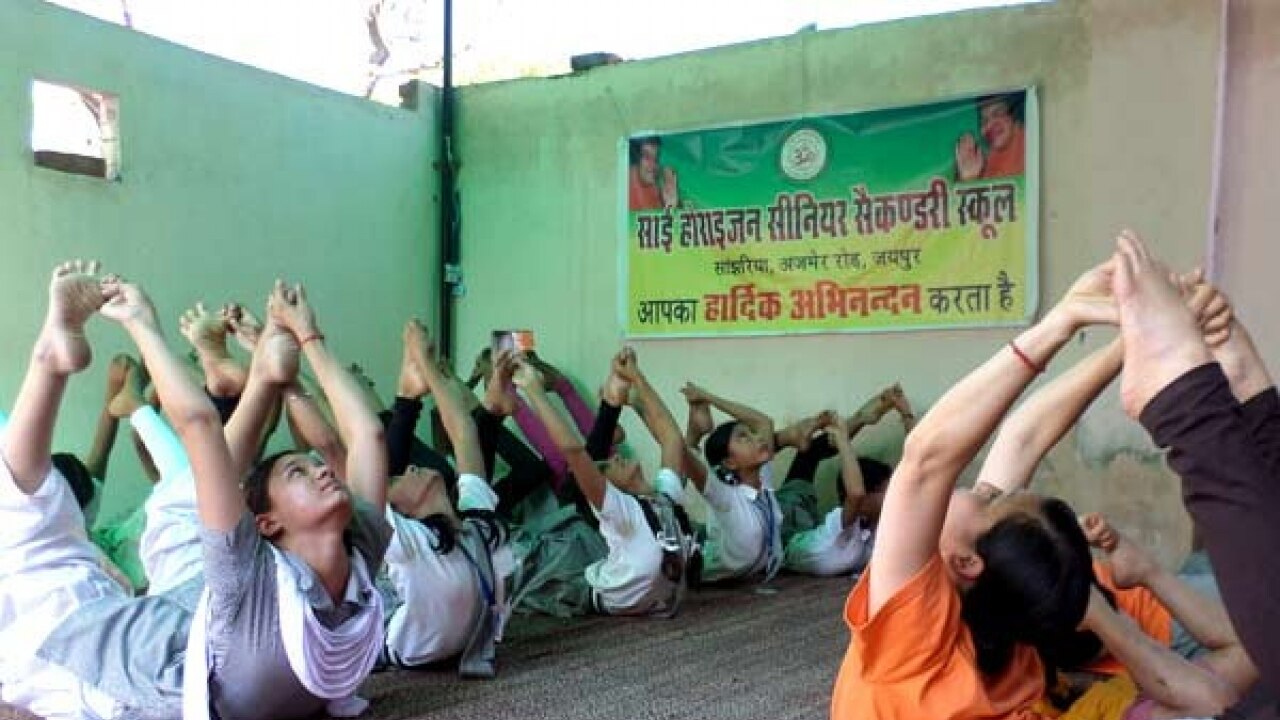
As the world celebrates the first International Yoga Day, understanding the true meaning of yoga is the need of the hour. The history of yoga dates back to the pre-Vedic period. The excavations at Mohenjo-Daro and Harappa, in Mexico, Egypt, China and Thailand have revealed statues in yogic postures. In the old religious texts like the Vedas, the purpose of yoga is stated to be liberation or salvation. In the changed perspective of modern times, we need to re-interpret the traditional wisdom of yoga as a system of living with ‘sense’ and ‘science’. “Yoga, as its true lovers and practitioners believe, is an integration of the head, heart and hands,’’ says Swami Satyanand Saraswati, founder of the world’s first yoga university, located in Bihar. “Yoga is not a part-time activity. It is a methodised effort towards self perfection,’’ describes poet-philosopher Sri Aurobindo. Generally, people imagine yoga in two ways. First, yoga for them is equivalent to yogasanas or postures. Secondly, yoga is renunciation of worldly desires. The only image in their mind is that of a yogi sitting in the Himalayas to perform tapas or austerity. This would be a narrow view of yoga.
Yoga deals with the psycho-physical aspects of an individual. Its purpose is to teach us to live life with an ideal frame of mind, free from the bondage of action and emotion. The 11th century Kashmiri text, Yoga Vasistha describes yoga as a way of quietening the agitated mind. The Bhagavad Gita calls yoga as a state of equipoise and doing work skilfully. Swami Shivananda used to say that asanas and pranayama are for the body, while for the mind and spirit you have to follow eighteen steps — serenity, regularity, absence of vanity, sincerity, simplicity, veracity, equanimity, fixity, non-irritability, adaptability, humility, tenacity, integrity, nobility, magnanimity, charity, generosity and purity. If these seeds of purity of behaviour and conduct bear fruit, you evolve into a better personality.
It was Patanjali, who had codified the system of yoga and its philosophy in what has come to be known as Yoga Sutras or aphorisms. There are 256 aphorisms and there are many commentaries on them. There are many English translations of the Yoga Sutras, including one by Swami Vivekananda. Patanjali lays down the many stages of yoga. The first two are called yama and niyama. Yama includes ahimsa (non-violence), satyam (uprightness), asteya (abstinence), and aparigraha (non-acceptance of gifts). Niyama comprises shaucha (cleanliness), santosha (contentment), tapah (austerity), svadhyaya (study). This will lead, according to Patanjali, to God. The other steps that follow are asana (posture), pranayama (controlled breathing), pratyahara (inwardness), dharana (holding together), dhyana (meditation) and samadhi (state of stillness). Yoga is understood and interpreted in many ways. It does not contradict any philosophy, religion and belief. Yoga teaches every practitioner to live his life more dutifully. The strict practice of these principles can harmonise one’s social interactions with inner feelings. This can reduce friction between one’s outer behaviour and inner attitude, which is the root cause of stress. Yoga is needed to treat psychosomatic diseases of the modern age, although therapeutic effect is only a minor benefit of yogic practices. The language of yoga can bind the world together today. It will help a doctor to be a better doctor, a teacher to be a better teacher, a politician to be a better politician and so on.
Let us on the eve of the occasion of yoga day, take an oath of not diluting the true principle of yoga. Let us not corrupt this treasure of knowledge and wisdom for commercial gains. Let us imbibe true yogic lifestyle to become proud citizens of the world where every individual is an expression of divinity, where peace, health and harmony are the mandatory accompaniments of living for all of us.
The author is a gynaecologist